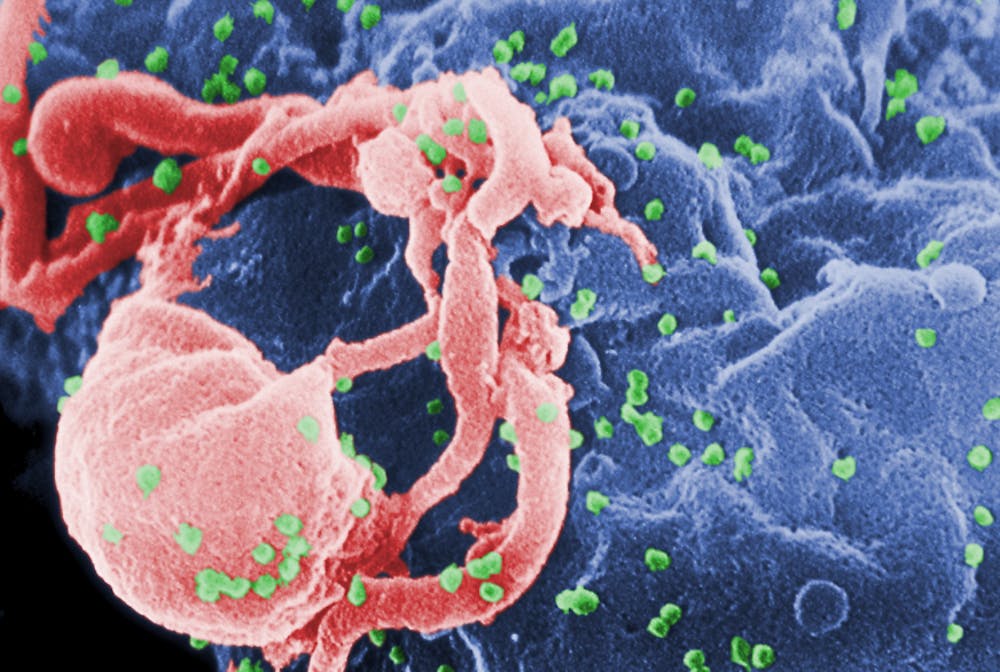Duke researchers have recently discovered why some people can produce antibodies capable of fighting HIV, and the answer might lie in one special protein.
The study focused on better understanding broadly neutralizing antibodies—which are able to bind to HIV and block infection—in order to develop a vaccine against the virus.
They settled on a protein called RAB11FIP5, which was found to alter the function of natural killer cells—one of the immune system’s early responders during a viral infection—and impact how HIV responds to antibodies.
“One major goal of HIV vaccine research is to elicit antibodies that can neutralize the diversity of circulating HIV viruses and protect against infection," said Todd Bradley, assistant professor in medicine and lead author of the paper. "These are known as broadly neutralizing antibodies.”
Although these antibodies are naturally developed in about half of all HIV patients, they are developed too late to effectively neutralize the virus because by then the HIV virus has already diversified, he said.
In developing a better understanding of bnAbs, the team discovered that HIV-infected individuals who did develop bnAbs tended to have higher levels of a particular protein called RAB11FIP5, which is involved with transport in cells. They discovered this by analyzing the differences in how much certain genes were expressed in patients who did or did not produce bnAbs.
“We further found that individuals who developed bnAbs had more dysfunctional natural killer cells that may allow increases in the numbers of helper-T cells that can increase the antibody response," Bradley said. "These data suggest that natural killer cell dysfunction permits bnAb development and could be targeted with an HIV vaccine.”
He explained that the increased expression of this gene in natural killer cells was likely a result of "chronic activation" and potentially a way for the cell to "rescue some of its function."
“We show that overexpressing RAB11FIP5 enhances [natural killer] cell function," Bradley said. "We believe that the gene is upregulated in natural killer cells from bnAb individuals as a result of chronic stimulation of these cells by years of HIV infection."
Although a vaccine has yet to be created, the researchers are currently testing the effects of modulating natural killer cell function during HIV vaccination in animal models. They are looking to determine if modifying natural killer cell function improves how the HIV antibody responds to vaccines.
“The success of making an HIV vaccine is coming from understanding how the body controls HIV and how it controls the production of protective antibodies," said Barton Haynes, director of the Duke Human Vaccine Institute and senior author of the study. "The discovery of the type of cells that control protective antibodies is a major step in solving the problem.”
Get The Chronicle straight to your inbox
Sign up for our weekly newsletter. Cancel at any time.

